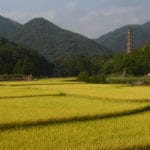Last Updated on 7 December 2023 by Cycloscope
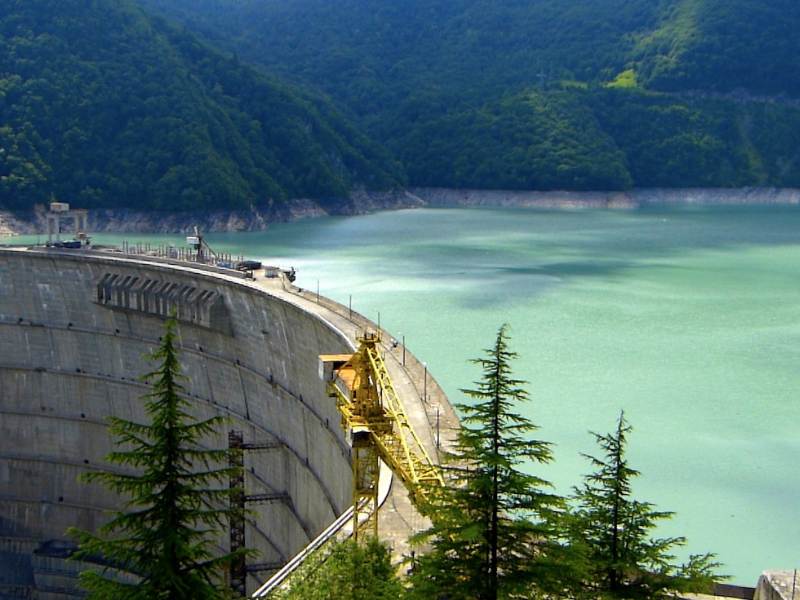
Cycling the Georgian Caucasus to reach Kaishi, the village that should be flooded by the Khudoni mega-dam project. For our third bicycle touring reportage.
Cycling the Georgian Caucasus to reach Kaishi, the village that should be flooded by the Khudoni mega-dam project. For our third bicycle touring reportage attempt, we finally got some local contact.
Thanks to the Georgian ONG Green Alternative and its spokesperson, Dato Chipashvili, who helped us make contact, we’ll meet the leader of the local movement against the dam project in his very house.
In the village that will be lost forever, together with so much wildlife and unique cultural and historical heritage, to produce some green energy. To know more about the topic check out our article about Georgian dams and the price of hydroelectric.
Cycle touring toward the Svaneti region – Zugdidi – Enguri Dam
This city is a frenzy! There are only 50,000 inhabitants, but they seem to be all at the same time in the car on the same road, there are no traffic lights, signs, crosswalks, or anything. All honking creates a schizophrenic polyphony which they seem to understand since as they say, there are few accidents.
We go in search of a bike repair shop because Daniele has to replace the chain. A lot of people around us and lots of questions, and we barely understand a few… But we understand that the road to Mestia is paved and the work in progress is now done. Good news!
We follow the road to Mestia, very quiet, a little slope begins, quite an easy one. A few miles from the Enguri dam we stop to sleep along the river surrounded by cows that roam here, always free, everywhere. A nice and peaceful spot, water is too cold to bath…
The gates of Svaneti
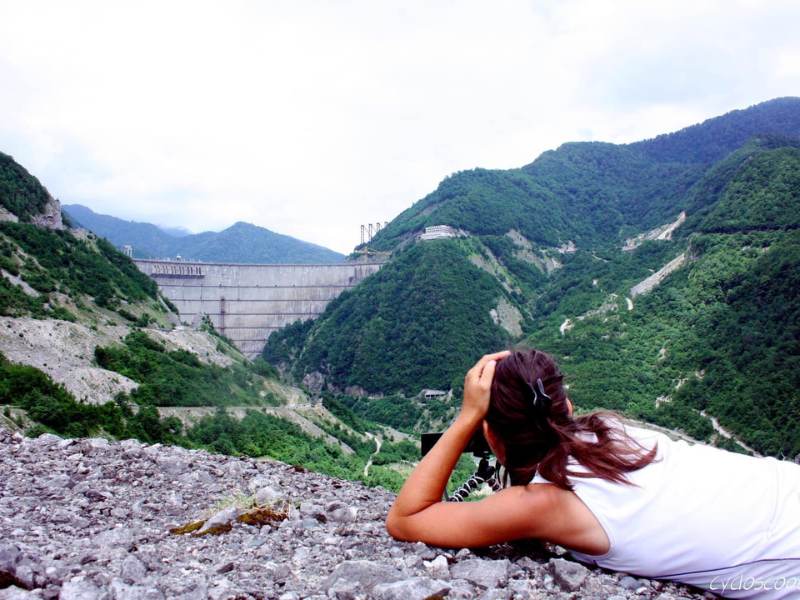
Enguri Dam – Leburtskhila
The last morning dream is an adolescent friend who is attacked and crippled by cows. I wake up, sweaty, in the tent. The heat is already unbearable. The Enguri murmurs reassuringly. The cows are not visible but their feces fill the lawn like big, gray, polka dots. Drought, they do not smell, they’re there, reminding me of who this place belongs.
The Enguri dam is just behind the mountain, very close. I do not see it but I perceive it clearly. The immense weight of millions of cubic meters of water as a liquid, giant Damocles sword. I walk through the hundred meters separating me from the river still stunned by the dream, I try to bathe in the Enguri but the water is too freezing. I rinse my face.
Raising my head I see a Lushnukor, a typical Svan defense tower. It’s up above me exactly above the tent, fifty meters. We didn’t see it yesterday. So we are officially in Svaneti, there is no doubt. Let’s pack the stuff, hop on the bikes and hit the road, the cows are there, impassive.
We climb to Potchko Etseri, the village under the dam. Evidently built in the Soviet era for the workers of the plant. And finally, I see it, massive, imposing, crazy as a temple, like human ambition. The biggest dam in Europe.
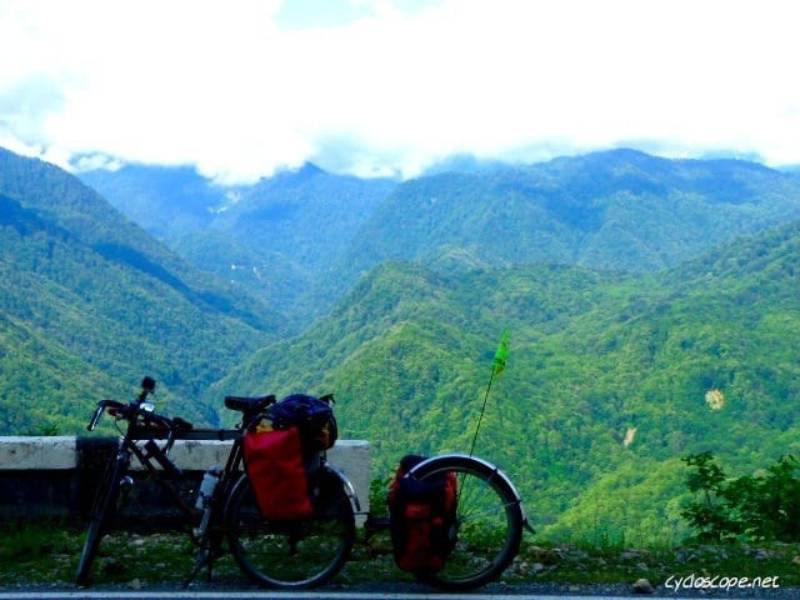
We climb again, upon a stony track leading to the top, hoping to be able to ride above the concrete arch of the dam. There is no way. There is a gate, and the guard is kind and tries to intercede for us with the boss up in the control tower, but the boss is inflexible, it does not matter if we have to ride ten miles more up the hill because of him.
We just have to go down the stones again, to the river, greet the cows, and face the climb, the real one, the Great Caucasus. After a few hundred meters Elena is already pushing, I’m going, overjoyed. Breathe, change my state of consciousness, and go. Sweat is a thick veil that dulls my eyes, I go.
Fifteen kilometers without rest, fifteen thousand meters of fatigue, fifteen million inches of gentle suffering. I remember them all, one by one. I see a fountain, a bar, I’m out of the trance. I drink, finally, I believe more than a liter in a sip. I put my head under the water, I believe for more than a minute. People look at me, people in the bar. The bar. It’s not a mirage. I commonly answer common questions. Shortly after Elena came, walking she was not much slower than me. We drink coffee and smoke a nice cigarette, Sportsmeni.
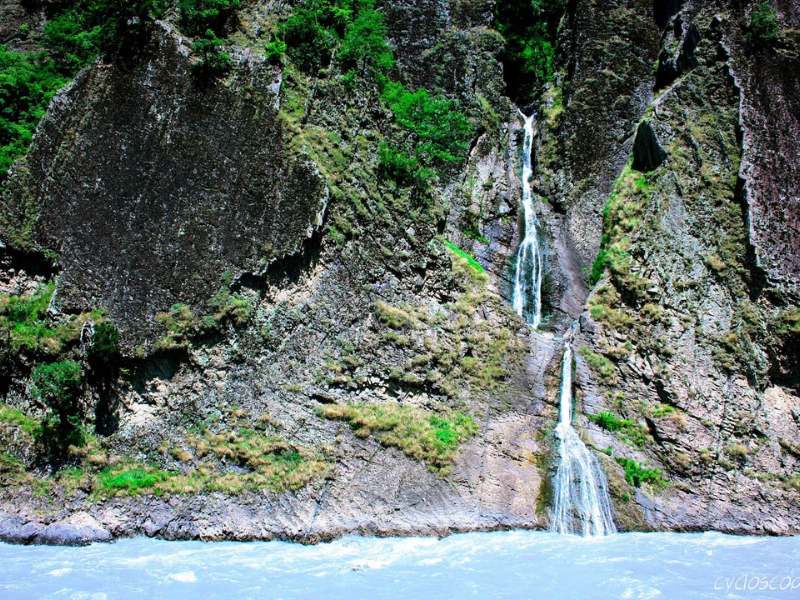
A man who speaks a bit of English drives us to the back of the bar. For the first time, we see the Enguri reservoir, which is green, emerald, and magnificent. The man tells us you cannot swim in there, he says there are 2,000 kilos of fish, maybe dinosaurs.
We resume the road, and after a few hundred meters a short downhill begins. Downhills are always short. To our right a waterfall, at least 30 meters. Ordinary administration here. And then finally the artificial lagoon of the Enguri, in all its majesty. We ride along it for 20 kilometers, often feeling the need to stop and admire it.
Evening falls, 15 km away from Kaishi, for the first time we see an ideal plateau for camping, sheltered from the landslides, which along the way lie on our neck like a guillotine, with big boulders challenging the force of gravity, a challenge they often lose. We sleep near Christ. Here too the cow’s shit is everywhere.
In Kaishi – Leburtskhila – Kaishi
Today we wake up calmly, we have only ten kilometers left to get to Khaishi, a wonderful road, apart from the constant danger of landslides. The village is all developed to the right side of the river, along and above the main road, which is the only road. There are a dozen shacks, and shops selling beers, candies, and ice creams. Only three of them are open, and no one sells proper food, neither fruits nor vegetables, nothing but a few cans of meat.
The river is loud, runs fast, and doesn’t seem to want to become a placid lake. After a few moments, Zura’s sons come to fetch us, one of them speaks some English, he is 13 years old, and he likes Messi. They take us up a dirt road to their house. The first floor is in stone while the second one, like all the houses here, is made of wood with a large terrace. In the house, there is his father Zura, a minute man with blue eyes. He does not speak English.
Zura is our contact in Kaishi, he’s the leader of the movement against the Khudoni project, the mega-dam project that should flood his village. While waiting for Zura’s wife to come back from her shopping in Zugdidi we go to visit the local school with the kids.
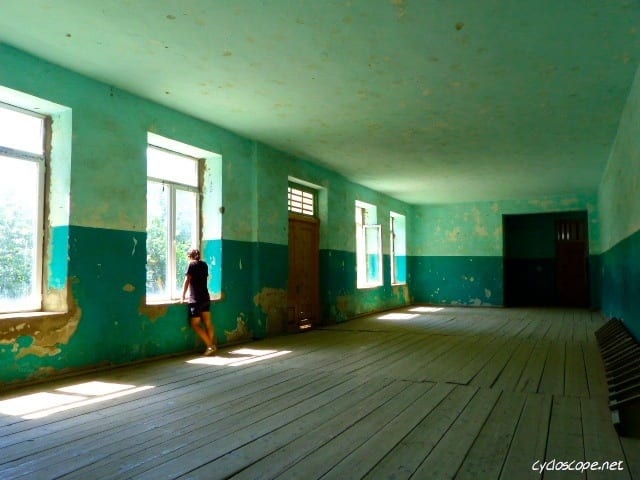
The school is close to the house, maybe a hundred meters. It is a rectangular building, from the early 1960s, that has not undergone many renovations since then. The kids’ pastime is cycling around the school, of course, there is no asphalt but at least it is flat. They want to try our bikes, we let them, a bit worried though, as bikes are not exactly their size.
In the meantime, we visit the school that is now closed for summer vacation, the door is always open though and there are people inside, probably teachers. A black dog is sheltering from the midday heat, the school is a little worse than the outside, old style, and the benches are still those of the sixties, why throw them away if they are still doing their job?
We leave the school, and Messi, and his friends, and our bikes, and proceed with our exploration of the village. Near the school, there is the church, and in the churchyard is the cemetery. The cemeteries in Georgia, or at least in the villages, are different from our “concrete condominiums”. Some fences enclose each tomb and inside there is the grave, a small garden, and often a small table with chairs. There are no wreaths but what serves to the deceased, a glass of chacha, a bottle of beer. Anyone has the things he was fond of, such as the motorcycle or the tools of his work. There’s also a beautiful little church made of stone and a huge bell that looks ancient.
The impressive thing is that the project of the new dam involves the flooding of the whole village, including the church and the cemetery. So people should not only abandon their homes, but also their dead relatives.
Zura’s wife is back around 8 pm, only four hours late, and says there were mad people on the minibus. It’s not hard to believe. We found out she is a professor of English though, to tell the truth, she doesn’t speak very well (probably the son speaks better), but less we understand each other. Zura is also a teacher, of mathematics.
We have dinner, accompanied by their homemade wine, a red wine, almost black, very good. We talk about the dam project, they tell us that there are no plans to relocate people to other villages or cities, but that they had been promised some money for compensation, how much nobody knows.
Ia (that’s her name) tells us that Zura is the biggest opponent of the project because, if taken to the end,” there would be no more Svaneti”, he says, and he has no intention of going to live in a city, want to stay here in the mountains of his ancestors. She, however, is from Zugdidi, she says there is nothing to do in Khaishi and she would rather have the money. We do not know if her husband knows that this is her opinion.
In Kaishi
We wake up, Ia has prepared something to eat and she’s already cooking again. She says she can help us with the interview as soon as she’s done with cooking. I do not know why, but today she does not seem in the same mood as yesterday. However, when she finishes cooking she disappears.
And if she sees us, she tells us nothing. We watch the football match with the kids and then with Zura we look at videos on YouTube: interviews with the people here, his participation in television debates about the project, and we understand the exact spot where the water should go. In practice, it will engulf everything up to the middle of the mountain. It’s a pity not to be able to communicate with Zura.
We don’t feel Ia is willing to help us talk to the villagers, there is not a good feeling between us. So we decided to leave tomorrow and go to Mestia, we’ve seen enough here. Next week we will interview Dato from Green Alternative in Tbilisi.


